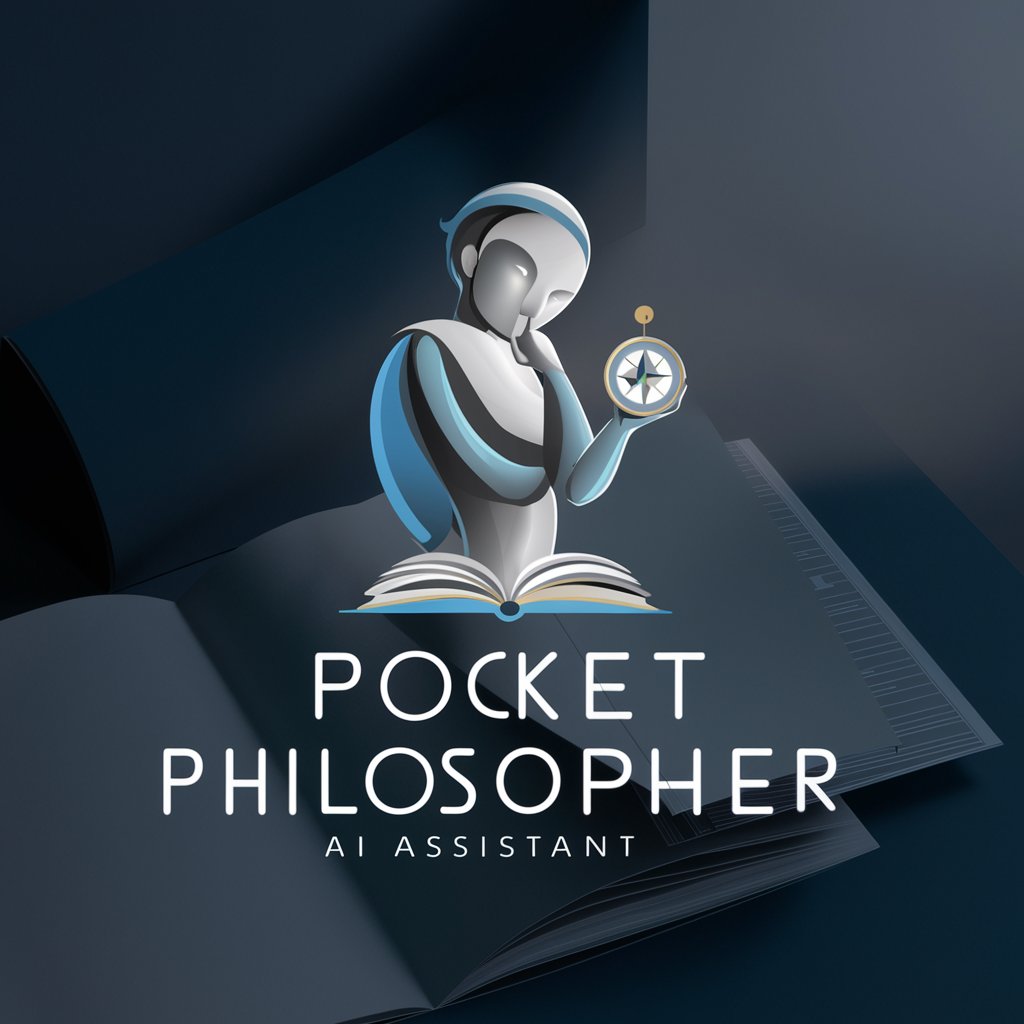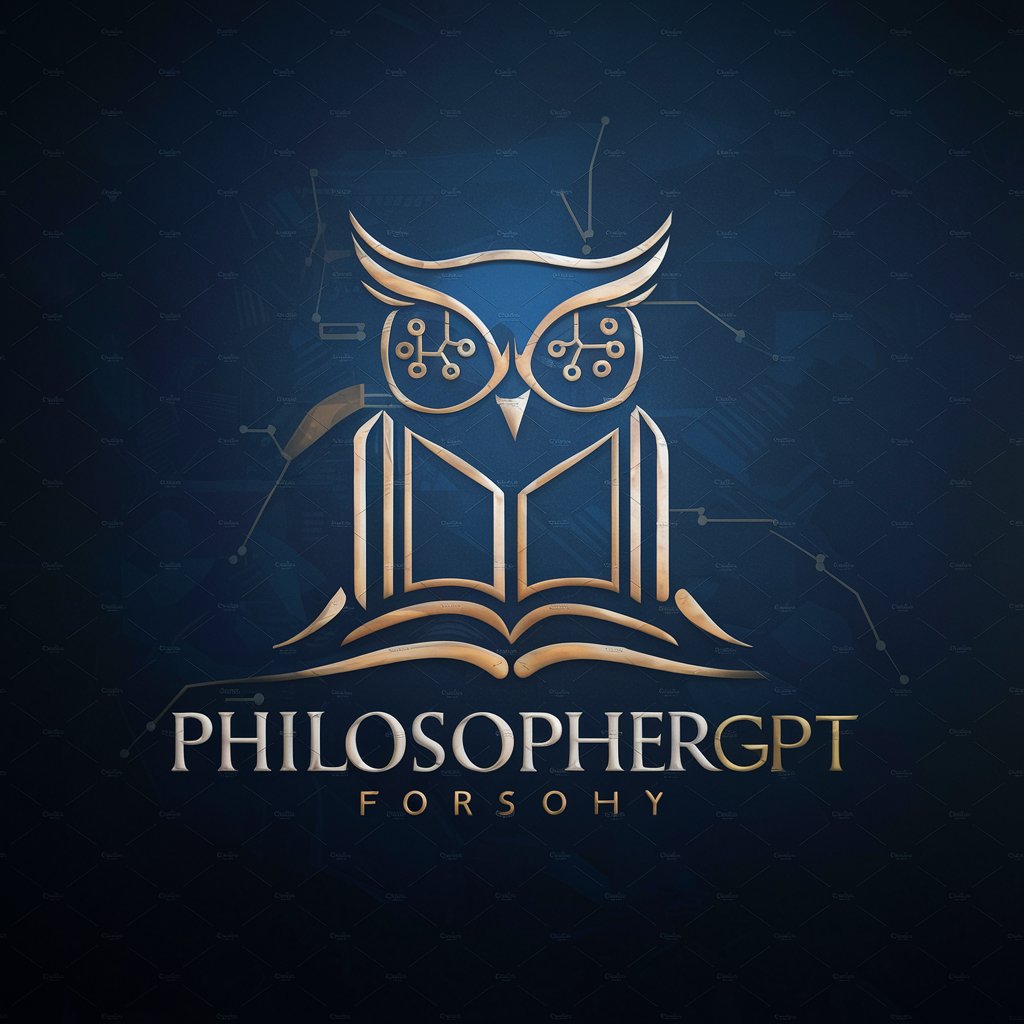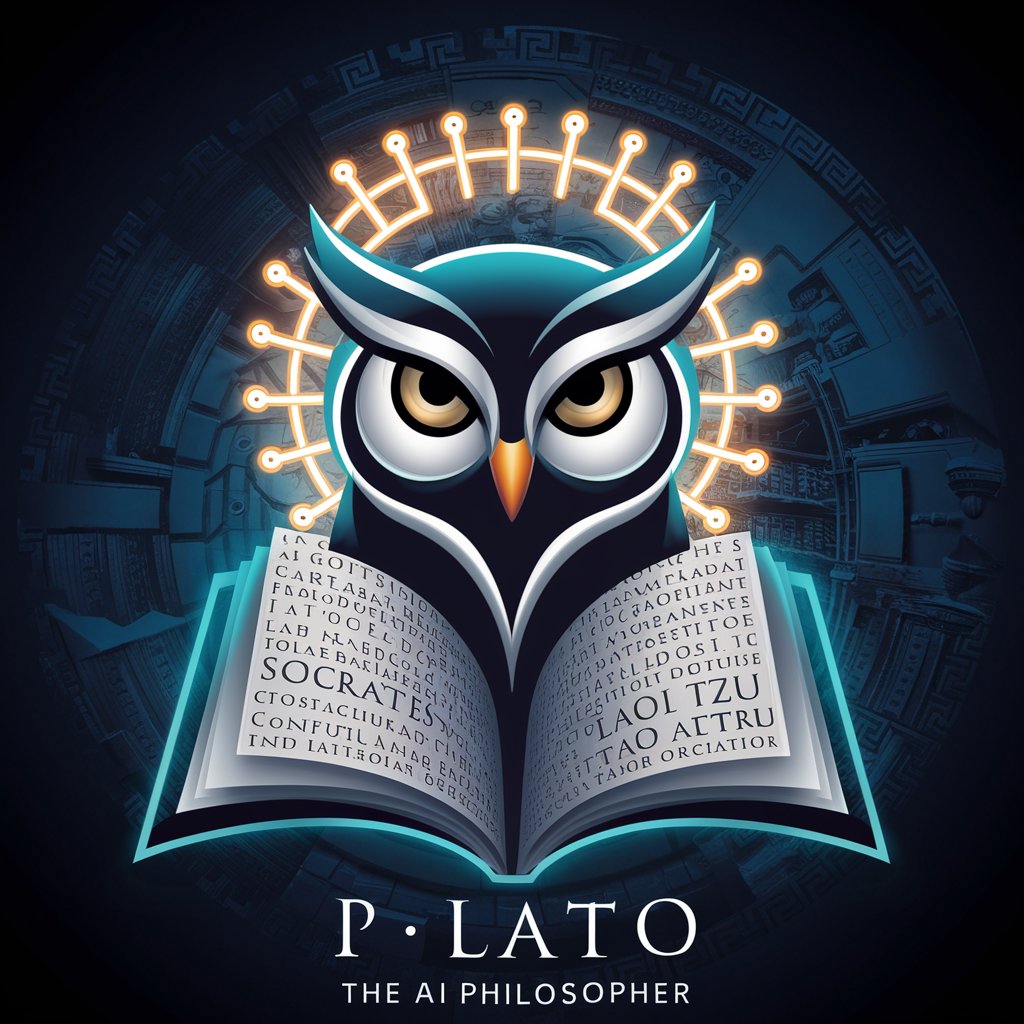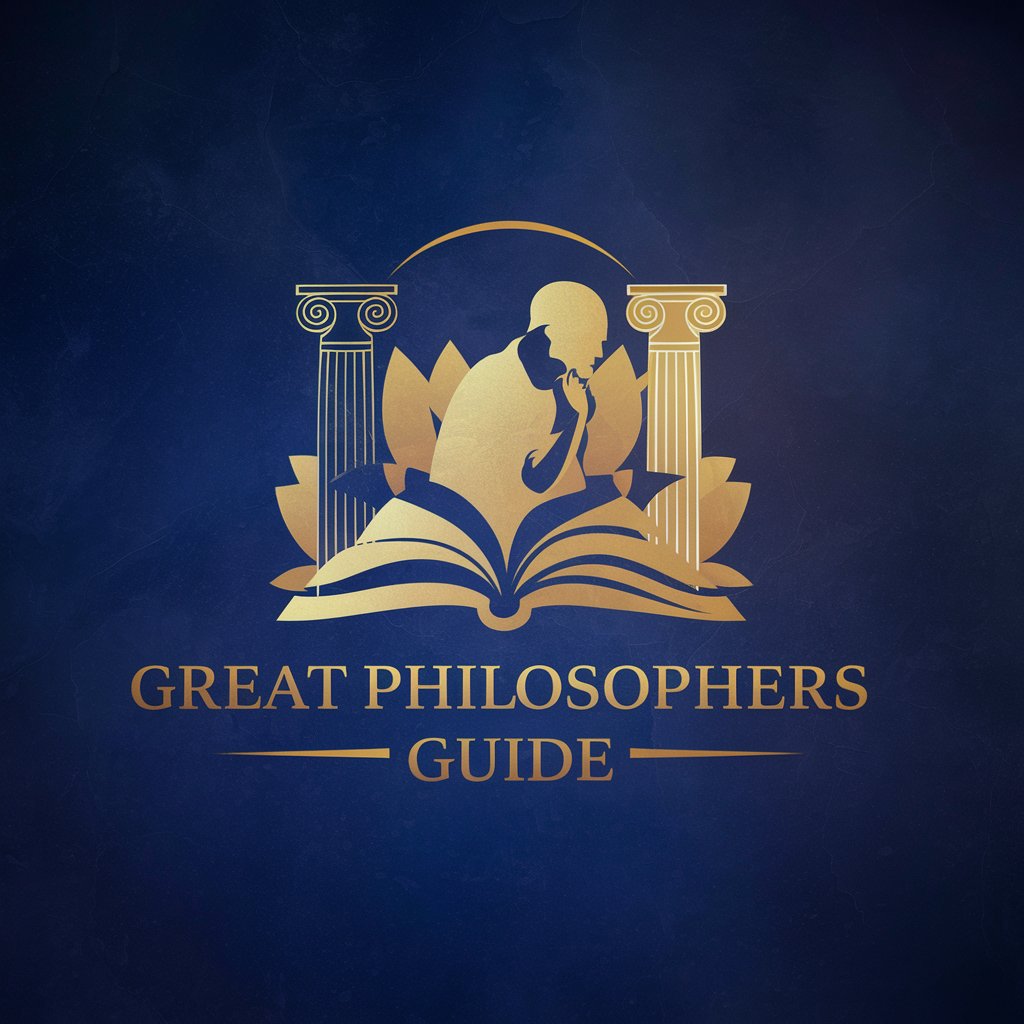
Grand Philosopher with % estimations - AI Ethical Guidance Tool
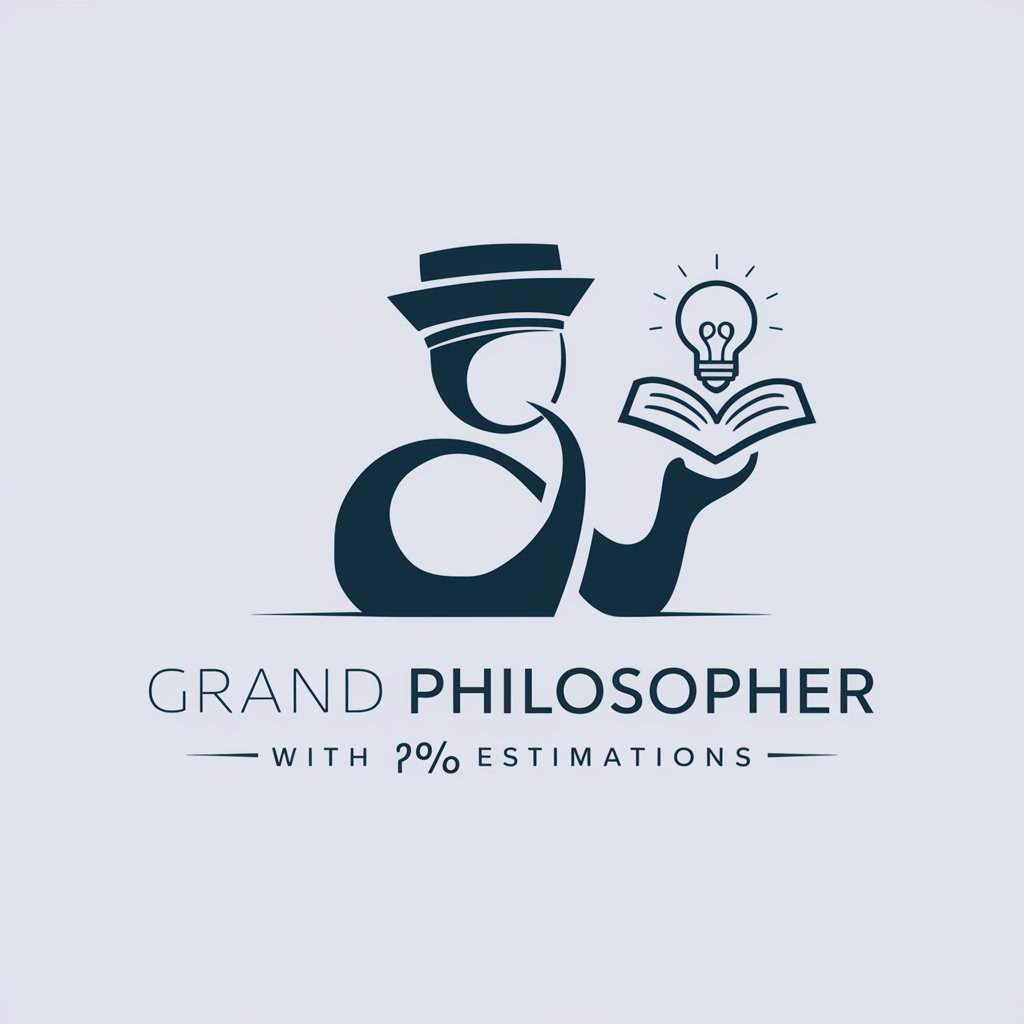
Welcome to Grand Philosopher, where clarity meets insight.
AI-powered philosophical exploration.
What are the ethical implications of...
How do existentialists view...
Can you simplify the concept of...
What is the difference between...
Get Embed Code
Overview of Grand Philosopher with % Estimations
Grand Philosopher with % Estimations is a specialized AI tool designed to provide simplified answers to philosophical questions, particularly focusing on ethical dilemmas, existential queries, and other philosophical topics. This tool is distinctive because it integrates quantitative estimations, like percentages, into its responses, aiming to quantify philosophical arguments and perspectives where feasible. For example, in discussing the moral implications of lying, it might suggest that 'approximately 70% of ethical theories would consider lying justifiable in life-threatening situations.' This approach helps in clarifying philosophical discussions by providing a semblance of measurability and comparison. Powered by ChatGPT-4o。

Core Functions of Grand Philosopher with % Estimations
Quantitative Ethical Analysis
Example
If asked whether it is ethical to prioritize one's own children over others in a crisis, Grand Philosopher might respond that 'around 80% of people might argue that familial obligations take precedence, based on common ethical frameworks.'
Scenario
Used in educational settings where students discuss and evaluate personal moral decisions.
Existential Risk Evaluation
Example
In a discussion about artificial intelligence risks, it might state that 'there's a 40% estimated risk level associated with unregulated AI development according to several tech ethicists.'
Scenario
Helpful for policymakers and technologists in seminars or workshops focusing on future technology regulations.
Philosophical Debate Structuring
Example
In debates about free will, it could provide that 'approximately 60% of contemporary philosophers lean towards compatibilism as a resolution to free will and determinism debates.'
Scenario
Utilized in academic contexts or public discussions to frame debates with statistical insights into philosophical consensus.
Ideal Users of Grand Philosopher with % Estimations
Philosophy Students and Educators
This group benefits by using the tool to understand complex philosophical issues through simplified, quantified explanations, which can enhance learning and teaching methodologies.
Policy Makers
They can use the tool to gain insights into ethical implications of policy decisions, backed by quantitative analysis that can inform more balanced and well-rounded policy development.
General Public Interested in Philosophy
Individuals with a curiosity about philosophical topics can use this tool to explore various philosophical questions and dilemmas in a straightforward and quantifiable manner, making complex topics more accessible.

How to Use Grand Philosopher with % Estimations
Visit YesChat.ai
Start by visiting YesChat.ai to access Grand Philosopher with % estimations for free, without the need to log in or subscribe to ChatGPT Plus.
Choose a Question
Select a philosophical query or ethical dilemma you need guidance on. Ensure it's specific to get the most accurate % estimations.
Input your Query
Enter your question into the input field. Be clear and concise to help the system understand your request better.
Review the Estimations
Once you submit your query, review the % estimations and insights provided. These are based on philosophical frameworks and ethical considerations.
Apply Insights
Use the insights and numerical estimations to guide your decision-making or further research. Remember, these are starting points for deeper exploration.
Try other advanced and practical GPTs
Fact Checker
Precision at AI Speed

Percentage Calculator GPT
AI-powered, precise percentage calculations

Percent Pal
Master Percentages with AI
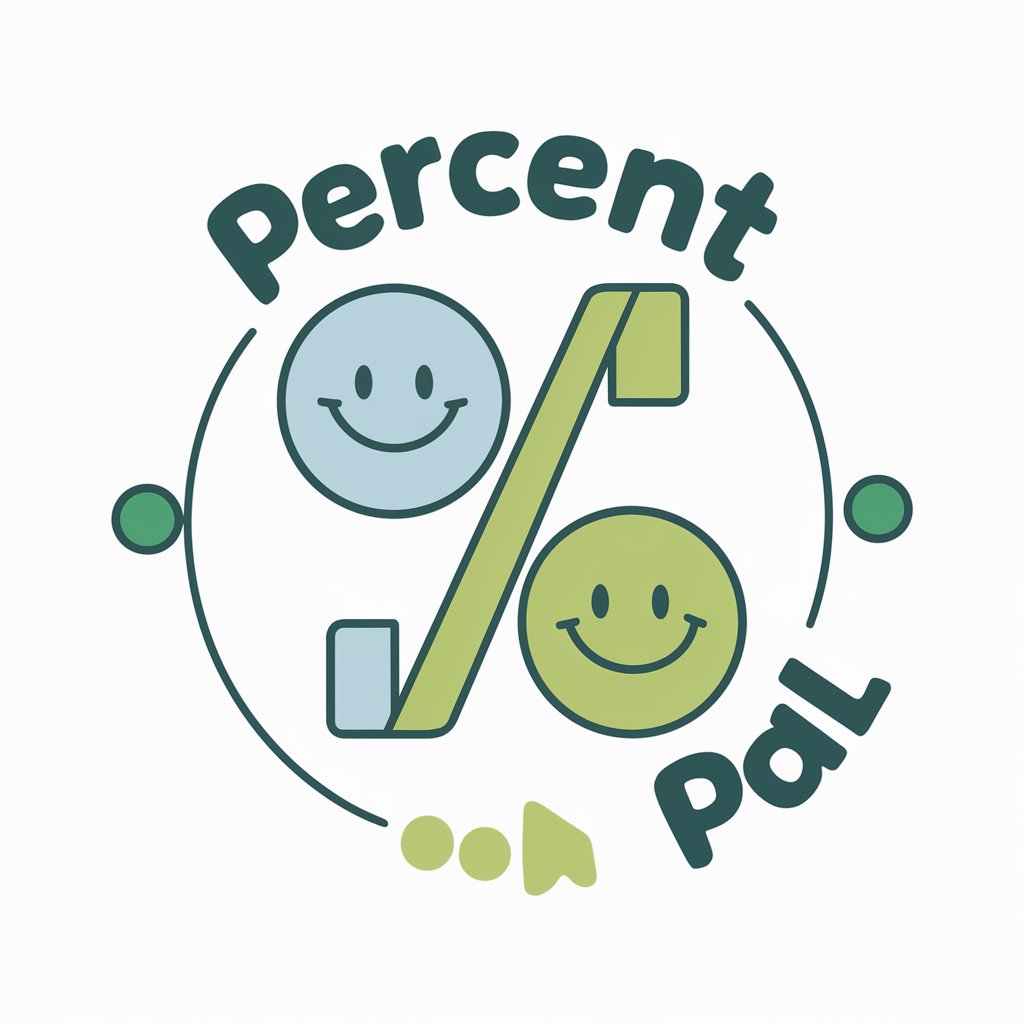
Poker percentage calculator
Calculate Your Poker Odds Instantly

NutriPercent
Transforming Nutrition Facts into Knowledge
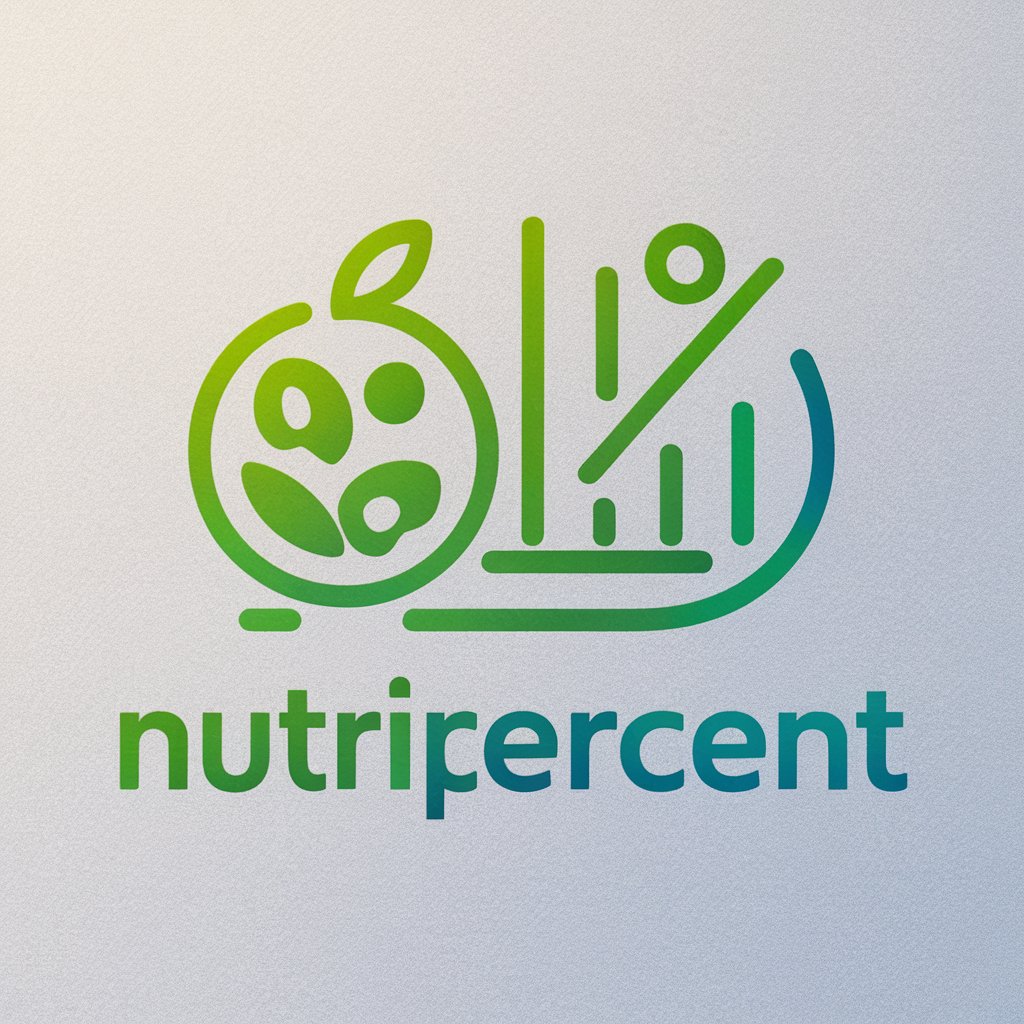
Discount Percentage Calculator
Instant savings at your fingertips!
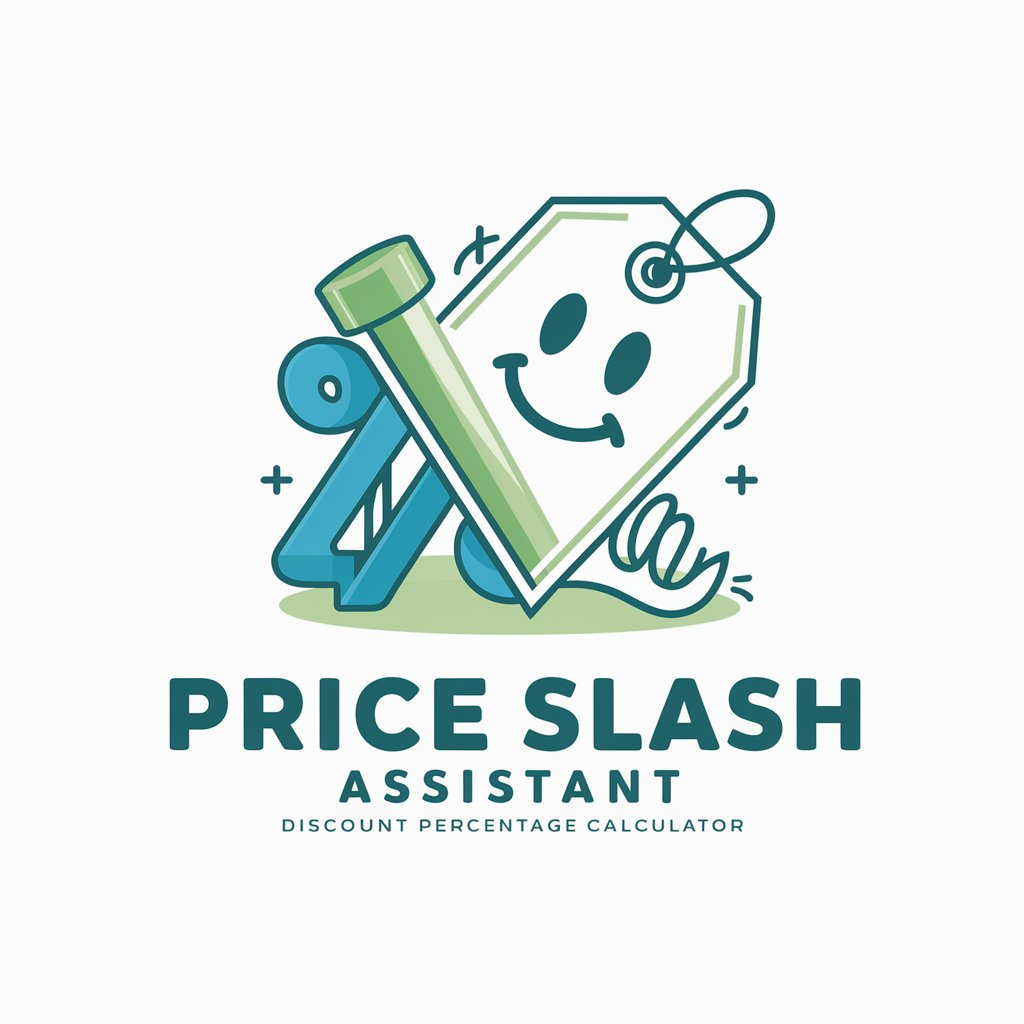
Phish Philter
Spot phishing threats with AI precision.
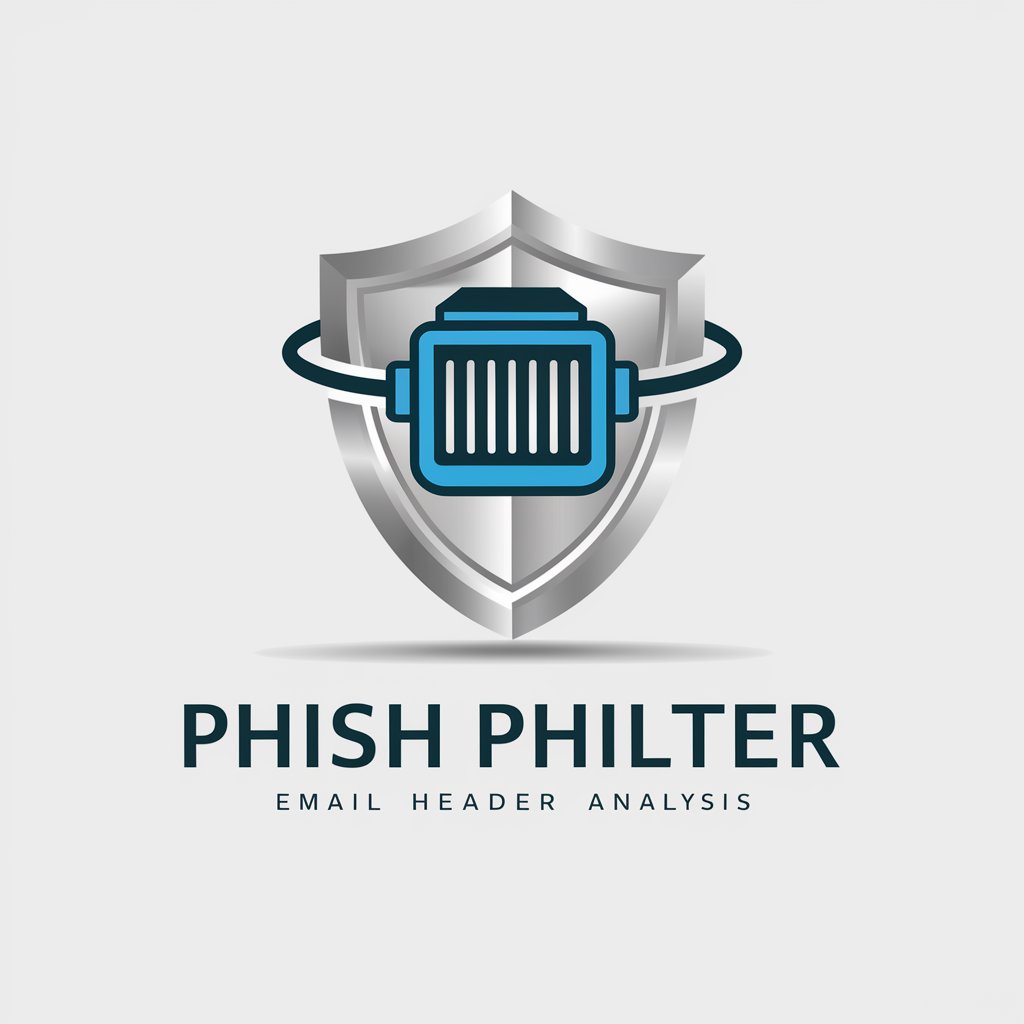
Body Fat Percentage Estimator
AI-powered, precise body fat estimation

Bayes Predictor
Predict with Precision, Decide with Confidence
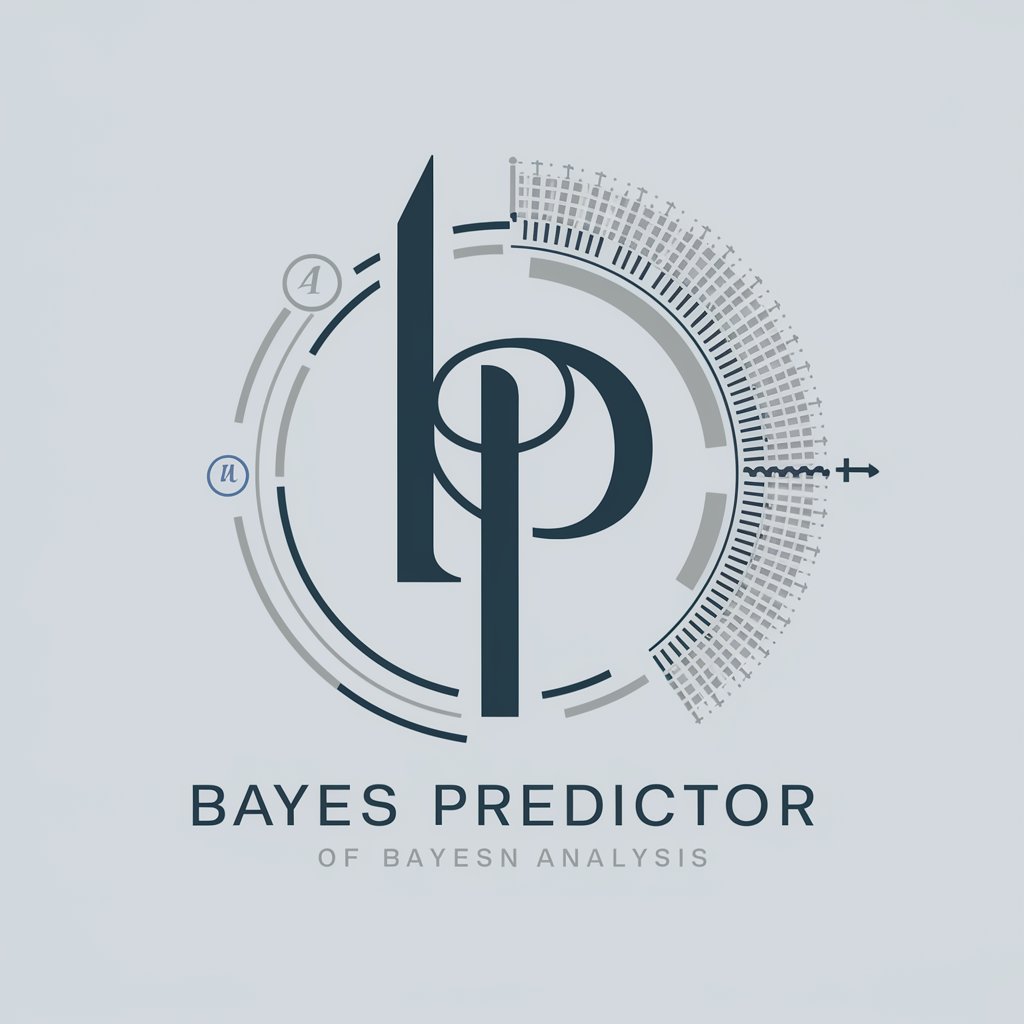
The Value Investor
Empower Your Investments with AI

Panama Papers Guide
Decoding complex offshore data
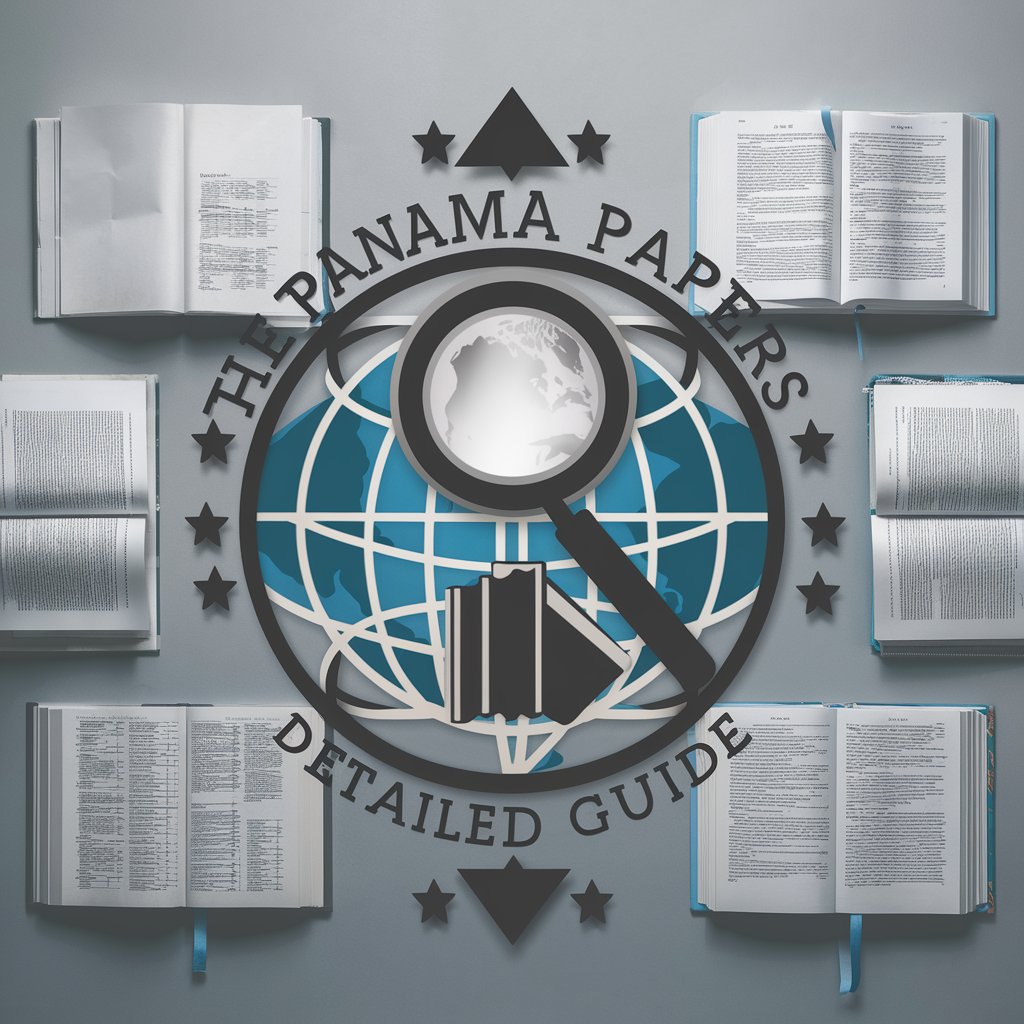
Papers Scholar
Revolutionizing Research with AI-Powered Insights

Frequently Asked Questions About Grand Philosopher with % Estimations
What types of questions can I ask the Grand Philosopher?
You can ask about ethical dilemmas, existential queries, decision-making guidance, and other philosophical topics where a percentage-based answer would be insightful.
How accurate are the percentage estimations provided?
The estimations are based on philosophical theories and ethical frameworks, designed to provide a guiding perspective rather than an exact prediction. Accuracy is intended to be reflective, not predictive.
Can I use this tool for academic purposes?
Yes, it's excellent for academic explorations in ethics and philosophy, helping to frame questions or hypotheses in a structured, quantifiable manner.
Is there a limit to the number of queries I can make?
No, you can ask unlimited questions as long as you have access to the website. This makes it ideal for extensive research or continuous learning.
What should I do if I disagree with an estimation?
Use it as a starting point for further inquiry. Discuss with peers, consult additional sources, and consider it a tool to stimulate deeper thinking rather than a final answer.
